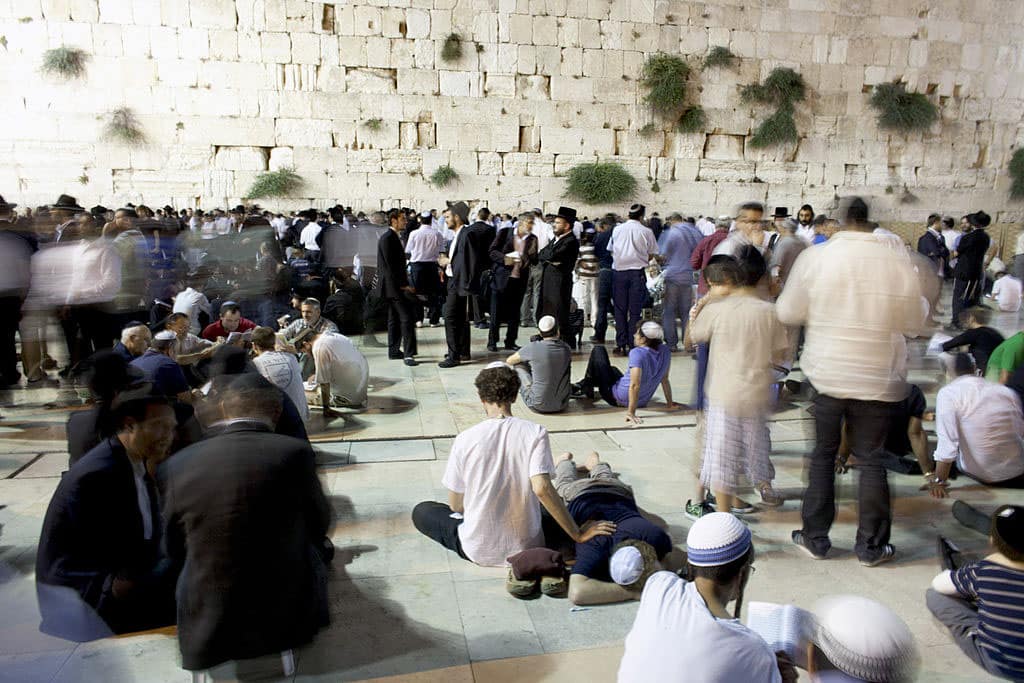 Jews read from the biblical Book of Lamentation as they observe Tisha B’av .in Jerusalem’s Old City, Israel. (Photo by Uriel Sinai/Getty Images)
Jews read from the biblical Book of Lamentation as they observe Tisha B’av .in Jerusalem’s Old City, Israel. (Photo by Uriel Sinai/Getty Images) The refusal to accept modernity,
while making what is temporary sacrosanct,
raised to the power of eternity,
is a major value messianists have banked,
especially since the holy temple’s sad destruction,
that they recall in sorrow on the Ninth of Av,
while faithfully believing that a reproduction
might well restore to them what they no longer have.
It’s said that when messiah comes, the fast
will be transformed into a festival in which
Jews will rejoice, but until this the die is cast:
the day a Rubicon they can’t cross like a ditch.
Zinovy Zinik writes about literary emigration (“Dublin Dragomans,” TLS, 6/26/04). In Dublin on Bloomsday in 1988 he met Anthony Burgess, who pointed out to him that Leopold Bloom was a Yid only for the Irish plebs, because his mother was Irish and his father a converted Hungarian Jew.
The diaspora, that is life outside your home, created a new religion: that of a demolished temple, a disintegrated past. If Talmudists are to be believed, the temple will remain in ruins until kingdom come. Then and only then will Jews gather in the Holy Land and the temple will be restored. Judaism, therefore, has become the religion of permanent waiting, of marking time and whittling away in the world that resembles an antechamber to that other world where life, pressed in between packed suitcases(The Hafetz Haim, one of the most saintly as well as scholarly rabbis of the twentieth century, used to keep a suitcase packed all the time, waiting for the Messiah, and never invested in furniture. GWH) is shaped by strict Talmudic laws. It is a state of temporariness raised to the power of eternity. It is the fear of returning to your own lost past that may have turned out to be someone else’s (Roman, Turkish, British) life, the refusal to go back home made sacrosanct.
Gershon Hepner is a poet who has written over 25,000 poems on subjects ranging from music to literature, politics to Torah. He grew up in England and moved to Los Angeles in 1976. Using his varied interests and experiences, he has authored dozens of papers in medical and academic journals, and authored “Legal Friction: Law, Narrative, and Identity Politics in Biblical Israel.” He can be reached at gershonhepner@gmail.com.























 More news and opinions than at a Shabbat dinner, right in your inbox.
More news and opinions than at a Shabbat dinner, right in your inbox.